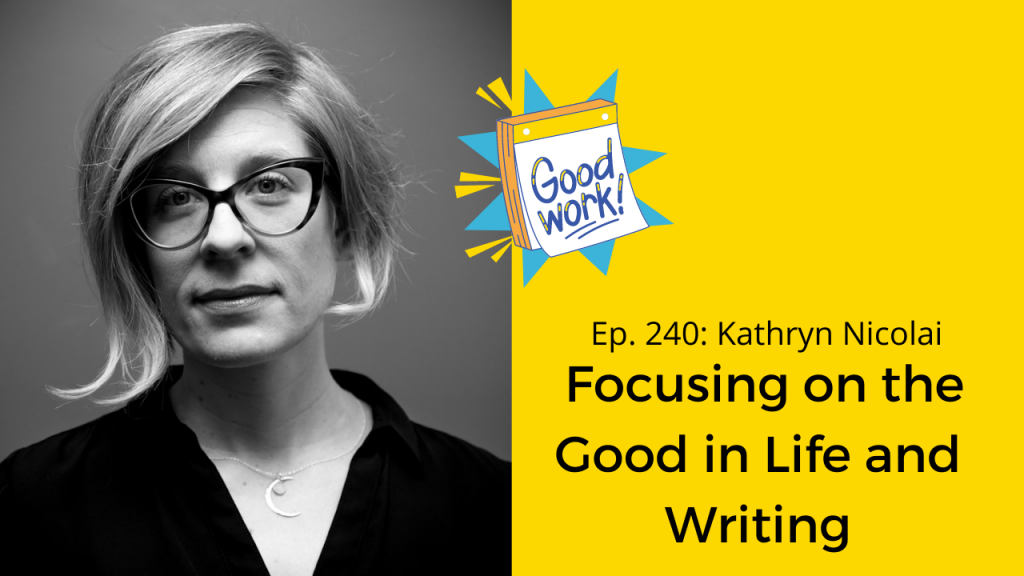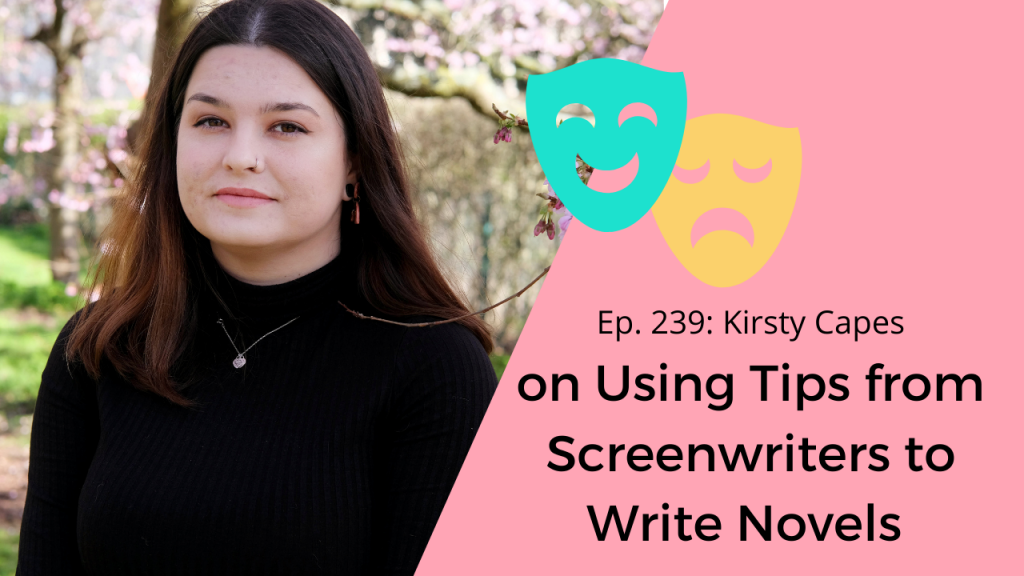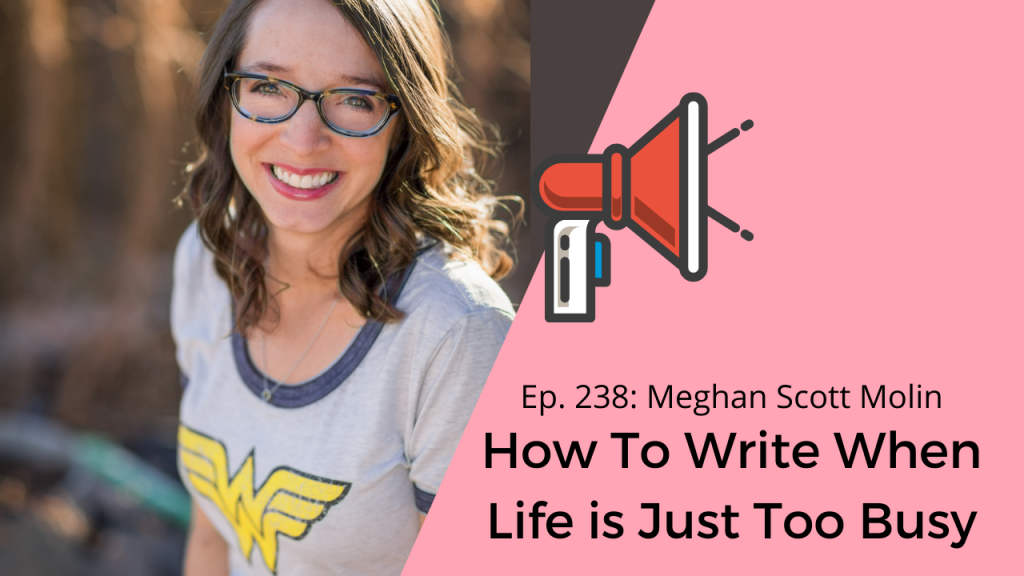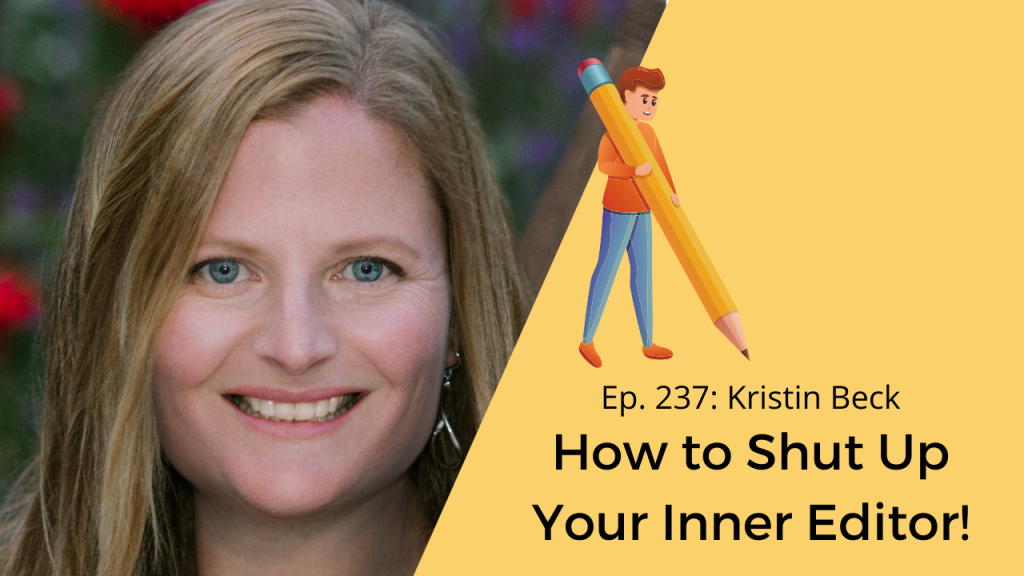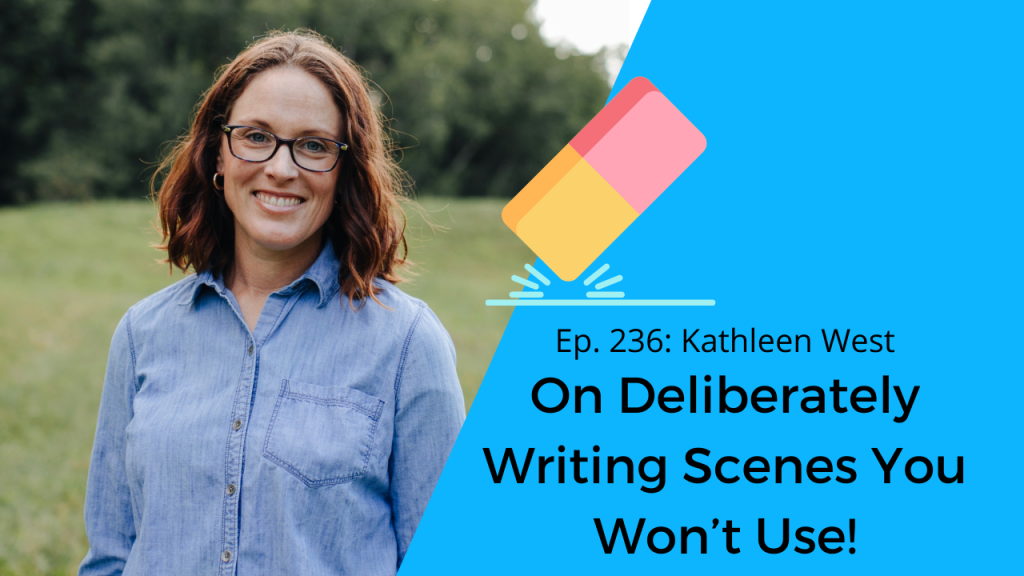Ilana Masad is a fiction writer, essayist, and book critic whose work has appeared in the New York Times, Los Angeles Times, Washington Post, the Paris Review, NPR, BuzzFeed, Catapult, StoryQuarterly, McSweeney’s Internet Tendency, as well as several others. All My Mother’s Lovers is Masad’s debut novel.
How Do You Write Podcast: Explore the processes of working writers with bestselling author Rachael Herron. Want tips on how to write the book you long to finish? Here you’ll gain insight from other writers on how to get in the chair, tricks to stay in it, and inspiration to get your own words flowing.
Join Rachael’s Slack channel, Onward Writers.
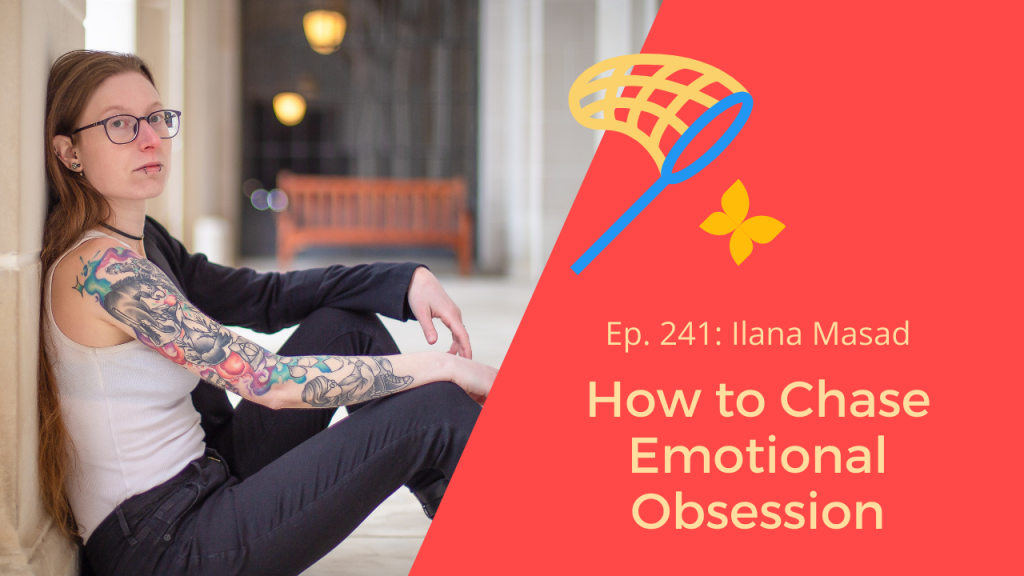
Transcript:
Rachael Herron: [00:00:00] Welcome to “How do you Write?” I’m your host, Rachael Herron. On this podcast, I talk to authors about how they write, what their process is and how their lives fit together. I’ll keep each episode short so you can get back to writing.
[00:00:16] Well, Hello writers! Welcome to episode #241 of “How do you Write?” I’m Rachael Herron. So glad that you’re here today as I speak to Ilana Masad on something that is always really exciting to me to think about and to dwell on, which is chasing emotional obsession. It’s not really fair to say, but I’m going to say it anyway, that I am obsessed with obsession. I might be, might have a little bit to do with the fact that I’m an addict in recovery, but obsession is so fascinating in all of it. Tiny ways that it sneaks into our lives and all the big ways in which it can make our lives incredible or derail or kill us. So we talk about that and our conversation was just fascinating. I know that you are going to enjoy talking to her. You’re not gonna be talking to her. You’re gonna be listening to her, but listening her to talk to me and with me for your benefit. So please enjoy that. [00:01:18] What’s going on around here? Well, I’m still in the house for another three weeks or so. And then we move into an Airbnb. The sale is still going ahead. We’re supposed to close escrow in, I think 12 days, touch wood as my mother would say, I’m still very nervous about it. Oh, just nervous about everything. But yeah, that’s where we are in our move toward New Zealand. I did have a moment today when I was writing my journal and I thought, what the hell are we doing? Because all of a sudden it’s really close. Like I can see three weeks in our house, two weeks in an Airbnb, one week in Boise, and then we leave. That’s seven weeks away and then we are leaving to go live in a new country. Just the two of us with no friends, a very small smattering of family who, no you know, I’m not close to but they are a family and I liked them a lot, but wow. Wow! What the hell? That’s my feeling today. What the hell? Writing wise, I have been steadily plugging along my assistant Ed Giordano. If you have not heard the episode where we talked to each other on episode 200, you should go back and listen to that because he’s awesome. We have committed to some accountability together because its always helpful to have an accountability partner. And I want to reassure you that if you’ve had an accountability partner in the past and you flaked on them, we all have. That’s how accountability partners go. Get a new one, go back to the old one, restarted up. That’s part of accountability is failing and I really got pretty granular when I was talking to him about what I want to accomplish in the next few weeks while we’re so busy, I just want one hour, a day focused work on the project at hand. [00:03:11] And I have a bunch of projects at hand that I could choose from, but I am just choosing one at a time and I’m working my way through them. And generally I do more than one hour. But knowing that I have to do one hour, one focused hour means that I don’t look at my email first in the morning. I don’t all the things that are normally easy for me, are not easy for me right now. Well, everything is so upside down. So having that one hour to fall into, has been really awesome. This morning I was working so my project at hand right now, I will tell you is a re-release of my collection of essays in memoir shape called A Life in Stitches. It’s a 10 year anniversary, and I got the rights back. So I am self-publishing it with a new essay and a new epilogue, a new cover. I am hoping to get a bunch of beta readers from my email list because I would like some reviews. I have great reviews on the book and I am going to have to lose all those reviews, since the one thing you can’t change on the vendors is ISBN. And I do not own the ISBN the Chronicle books assigned to the memoir. So I have to give it my own ISBN, which means it’s a brand new book and I’ll lose all those awesome reviews. So that’s something I’m thinking about, but that’s what I’m working on right now. That’s my project at hand and working steadily on it. [00:04:29] Moving forward, it’s just getting done. It’s just getting done in one and two and three hour bursts, but mostly one or two hour bursts and it’s going to be done soon. And then I’m going to read the audio book of it, which I was so excited about. I don’t think I’ve mentioned that on this show, but I always wanted an audio book of that particular book. Knitters, listen to audio books, knitters, listen to audio books before anyone else was listening to audio books so that they could keep their hands free and their eyes on their work. Knitters crasher’s, crafters in general love audio books. So I’m very excited that I’m going to be able to do that. And in something I may regret, I’m going to try and do it here in the house in the next three weeks before we leave so that I can at least be editing it when we’re in New Zealand. So I am in the process of soundproofing, or at least sound dampening one of our closets because we’ve never had a closet that was empty. And right now we have bunches of closets. Well, three closets that are empty and I’m going to line one and make it into a soundproof chamber. We have air conditioning now that’ll save my life. So that’s what I’m working on right now. That’s what’s going on around here. [00:05:39] That’s enough of an update for me. Let’s jump into the interview with Ilana. I hope that you enjoy it. I hope that you are getting some of your own writing done. Do you need an accountability partner? Come to any of these episodes, HowDoYouWrite.net and at the bottom, there’s always a link to join my slack channel. Find an accountability partner in there. We have an accountability channel in onward writer, slack channel. So you should come and join that. All right. Happy writing my friends and enjoy the interview. We’ll talk soon.Rachael Herron: [00:06:07] Well, I could not be more pleased to welcome to the show today, Ilana Masad. Hello, Ilana, welcome!
Ilana Masad: [00:06:12] Hi, how are you?
Rachael Herron: [00:06:14] I am so happy to talk to you about All My Mother’s Lover’s. I have been really
Ilana Masad: [00:06:19] Thank you
Rachael Herron: [00:06:20] looking forward to this interview. Let me give you a little bit of an introduction here. Ilana Masad is a fiction writer, SAS, and a book critic whose work has appeared in the New York Times, the Los Angeles Times, Washington Post and the Paris Review, NPR, BuzzFeed, Catapult, StoryQuarterly, McSweeney’s Internet Tendency, as well as several others. All My Mother’s Lovers is Masad’s debut novel. And first of all, I loved it.
Ilana Masad: [00:06:49] Thank you
Rachael Herron: [00:06:50] Second of all, I saw it referred to, and I kind of remember where I saw this, but I saw it referred to as a queer tour de force. And I really feel like that’s what it was. So first of all, I want to thank you for the way that you write about love
Ilana Masad: [00:07:06] Thank you
Rachael Herron: [00:07:07] and its forms. But even more than that, like my, one of my favorite things in life to write about, and to think about not to feel necessarily, but to write about his grief. And you do- I have goosebumps just thinking about your book right now. You did such an incredible job with that
Ilana Masad: [00:07:22] Thank you. Thank you. I, grief is one of those legitimately universal feelings. I think it just looks so different depending on who you are and when you are and where you are and how,
Rachael Herron: [00:07:32] Yes
Ilana Masad: [00:07:33] How you relate to it. But it’s something that I think any person who is lucky enough to have any kind of love in their life feels
Rachael Herron: [00:07:40] And I think it’s really important, what you just said to how you relate to it. I think how we all relate to it changes as we, you know, aging and changing the lives of, there are some people in my own life that I’ve known who are not willing to ever look at it. And then there are people who kind of enter into willingness unwillingly because of events. And I think that’s kind of what you look at in the book. And it was just so moving to me. So I would like to talk to you about your writing process. This is a show for writers and about process. However, I feel like you might have, this is my jumping to an assumption. I feel like you might have feelings about not writing a book like this, but also being a book critic. How does that feel? How do you put those two things together? How do you step out of your own way to get the work done?
Ilana Masad: [00:08:31] Well, in terms of, I mean, I think about fiction and criticism just very differently, you know, like they serve such different purposes in my life as a writer and I tend to not think about them in relation to one another very often, or at least I think that was true before the book was published. I think the process of publication as most writers will tell you is so utterly different than what writing is, right. Publication is like the opposite of writing.
Rachael Herron: [00:09:02] Every way
Ilana Masad: [00:09:03] Right, exactly. And so, I think probably now I’m realizing more how much being a critic means that I get in my head about who’s doing better than I am, and who’s getting the accolades and, you know, and I need to always remind myself, well, first of all, it only looks like that from where you’re sitting, the people who are experiencing that are probably not feeling it the way that it looks. Right. Most people, I think, I mean, at least most writers I know even those who’ve succeeded very much don’t tend to feel the success in the way that it maybe looks like they should feel it. But otherwise, I mean, I, you know, and just in terms of the craft, I really don’t think about them in related ways at all. Which I think is lucky because I’m not sure I wouldn’t be able to write fiction if I had started out as a book critic, but I started out as a fiction writer. I just succeeded in my book criticism sort of writing earlier or more publicly than I did with my fiction writing.
Rachael Herron: [00:10:08] That makes so much sense to me. For some reason, I thought the book critic proceeded the fictional, although really nothing usually proceeds fiction. We started so, so young that makes a lot of sense in my head. How does it- and these are just my own, I know these aren’t on the list of questions that I said, but how, how does it feel just out of curiosity, how does it feel to be critiqued?
Ilana Masad: [00:10:29] It’s weird, you know, because I find myself looking at the articles, like both from, you know, my own ego is there as a writer of like, what are they saying? And are they saying nice things? Or are they saying not nice things? What are they criticizing? But then also as a critic,
[Read more…] about Ep. 241: Ilana Masad on How to Chase Emotional Obsession